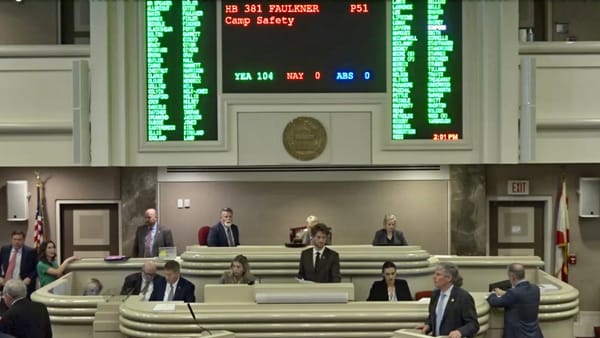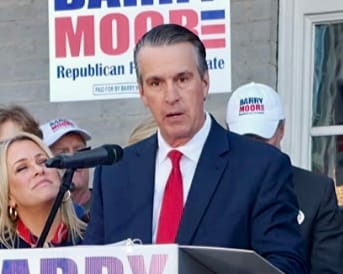FBI Director Kash Patel Ends Ties With SPLC, Calls Out Partisan “Smear Machine”
Follows recent severing of ties with the ADL—“the FBI will never rely on politicized or agenda-driven intelligence from outside groups”

FBI Director Kash Patel announced Friday that the Bureau has officially cut all ties with the Southern Poverty Law Center (SPLC), a left-wing activist group long accused of smearing conservative and Christian organizations.
On Friday, Patel took to social media to say:
“The Southern Poverty Law Center long ago abandoned civil rights work and turned into a partisan smear machine. Their so-called “hate map” has been used to defame mainstream Americans and even inspired violence. That disgraceful record makes them unfit for any FBI partnership.
In April, during our Anti-Christian Bias Panel, I made it clear that the FBI will never rely on politicized or agenda-driven intelligence from outside groups — and certainly not from the SPLC.
Under this FBI, all ties with the SPLC have officially been terminated.”
That the SPLC added Turning Point USA (TPUSA) to the “hate map” only months before the assassination of Turning Point USA founder Charlie Kirk was undoubtedly a contributing factor in Patel’s decision to sever ties. In a May, 2024 report, the SPLC said that:
“Several weeks after the 2024 presidential election, Charlie Kirk, founder and president of Turning Point USA (TPUSA), proudly embraced a white nationalist conspiracy theory while celebrating then-President-elect Donald Trump’s plans for mass deportation.”
The report went on to say that, ”Charlie Kirk’s TPUSA is a well-funded, hard-right organization with links to Southern Poverty Law Center-identified hard-right extremists and a tremendous amount of influence in conservative politics.”
While the SPLC condemned the attack on Kirk, it has not removed Turning Point USA from the “hate map,” as far as ALPolitics.com has been able to determine.
As if that weren’t enough, the SPLC has disturbing ties to Antifa, which President Donald Trump recently declared a domestic terrorist group.
The SPLC once gained praise for its legal fights against the Ku Klux Klan, but in recent decades has come under fire for lumping Christian and conservative advocacy groups into the same category as extremist organizations. In 2012, a gunman used the SPLC’s “hate map” to target the Family Research Council in Washington, D.C., planning mass murder before being stopped by a security guard who was critically injured.
His decision is well-timed. The SPLC has, in recent years, drawn mounting criticism over its classification methods, financial practices, and internal culture. Its list of “hate groups” has been accused of running overly broad and politically motivated labels.
Behind its public façade, dissent has also erupted from within. In 2024, employees accused senior leadership of institutionalized sexual harassment, racial bias, and gender discrimination—charges authorities say were covered up.
The SPLC’s funding and spending patterns have also drawn scrutiny. Critics point out that the organization maintains a sprawling headquarters (often derided as the “Poverty Palace”) and has poured resources into fundraising and media campaigns far more aggressively than legal aid and direct civil-rights work.
Perhaps most telling was the ouster of cofounder Morris Dees in 2019, following internal pressure and investigations into his conduct. His removal reopened old wounds about the SPLC’s governance and culture.
Taken together, these elements provide more than a pretext; they make a structural case for why the FBI should no longer accept the SPLC’s judgment merely because of convenience.
The FBI confirmed it no longer uses SPLC intelligence or engages in any contact with the group.
Patel’s move follows his decision earlier this week to end Bureau ties with the Anti-Defamation League (ADL), another organization criticized for blurring the line between security work and progressive activism. The ADL recently drew backlash after labeling the “America First” as “hate speech.” Patel argued that partnerships with such groups undermine public trust, saying the FBI “cannot and will not outsource its credibility to political outfits disguised as watchdogs.”
Patel has publicly leveled other charges, accusing ADL leadership of embedding spies in civil society, accusing them of surveillance, and condemning former practices of embedding FBI agents in ADL operations.
The ADL’s reputation, long considered untouchable in many circles, has also frayed. Its “Glossary of Extremism and Hate” drew sharp backlash when it labeled Turning Point USA as extremist, prompting public outcry. The ADL recently removed the Glossary, as ALPolitics.com reported.
Inside the organization, staff discontent has spilled into view. Reports show confusion and dissent over shifting strategy, ideological bias, and the ADL’s turn toward influence peddling rather than civil-rights guardianship.
Critics have accused the ADL of weaponizing antisemitism claims and manipulating its high-profile status. Some claim the group conflates legitimate criticism of Israel or pro-Palestinian speech with hatred of Jews—recasting political disagreement as intolerance.
Further, controversy has dogged its fundraising and political alignment. The ADL has ramped lobbying efforts for pro-Israel policies and has been accused of using antisemitism metrics to silence dissent and critics.
Most strikingly, Wikipedia editors downgraded the ADL to a “generally unreliable” source on the Israeli–Palestinian conflict—citing repeated conflations of criticism of Israel with antisemitism, and concerns over misleading statements by its leadership.
Critics have long argued that both the SPLC and ADL serve as partisan enforcers rather than neutral arbiters. Patel’s sweeping rejection of their influence marks one of the sharpest breaks between the FBI and activist groups in recent history.
“Public safety must never be compromised by political agendas,” Patel said. “The American people deserve an FBI that is focused on real threats—not one that parrots activist talking points.”
Patel’s decision is more than merely symbolic. Cutting ties with the SPLC and ADL cuts off channels that for too long have allowed activist groups to influence law enforcement priorities without accountability.
The severances also restore a principle: the FBI should judge threats based on evidence and due process—not outsource that to organizations whose agendas are partisan or ideological.
Patel’s move delivers a clear message: the FBI answers to the American people, not to donor-backed advocacy groups.




